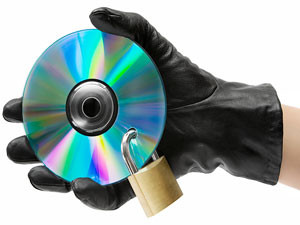
Microsoft's fight against software piracy in SA is making progress, thanks to increased consumer awareness and collaboration with the Directorate for Priority Crime Investigation (the Hawks).
This is according to Marius Haman, lead of Microsoft's Digital Crimes Unit (DCU) in Sub-Saharan Africa.
"The war is not yet won. We've been successful in a few skirmishes, but this is a long-term fight," says Haman.
The Hawks this week conducted raids on the Johannesburg premises of resellers supplying counterfeit goods and unlicensed software, while Microsoft's piracy prevention programmes also led to the seizure of 100 counterfeit discs.
The software company says one suspect was arrested on site, while others were being rounded up and are set to appear in the Specialised Commercial Crimes Court on charges of dealing in counterfeit goods. The offence carries a penalty of R5 000 per disc, or six months imprisonment.
Shifting attitudes
Most of the DCU's recent success in anti-piracy efforts can be attributed to different approaches from both law enforcement and the general public, says Haman.
"Historically, commercial crimes, such as the ones we investigate, were not a priority because of the massive task load faced by law enforcement officials, but this has changed in recent years."
Beyond counterfeit software, piracy has placed smaller businesses at risk from a loss of sales revenue, says Haman. "There are legitimate businesses which are sometimes being pushed out of the market, because of widespread piracy."
Haman notes a "perception issue", particularly among SA youth, that there are no consequences besides the law, but the economic impact cannot be discounted.
The DCU conducts its own undercover investigations, says Haman, and the leads it generates go a long way in protecting Microsoft and its partners.
The software giant has also contributed in terms of training and supporting law enforcement officials to boost technical forensic analysis, according to Haman.
"We've worked closely with the Hawks' digital forensics lab. They conduct the initial forensic analysis on any goods seized and they provide opportunity for Microsoft to comment and this has helped secure convictions," he says.
Bitter experience
Although increased broadband penetration presents users with the opportunity to illegally download content from the Internet, Haman says it could also deter people from piracy.
"The more people are connected to the Internet, the more chance they have to create their own content and if they experience first-hand what it would be like for their intellectual property to be used without consent, it could also help change attitudes towards piracy,"
A study by The Software Alliance, in May last year, found that a 1% increase in the use of licensed software would generate an estimated R2 billion in national production, compared to almost R1 billion from a similar increase in pirated software.
Licensed software reduces security risks and creates operating efficiencies, which go directly to the bottom line for enterprises, the study says.
Share